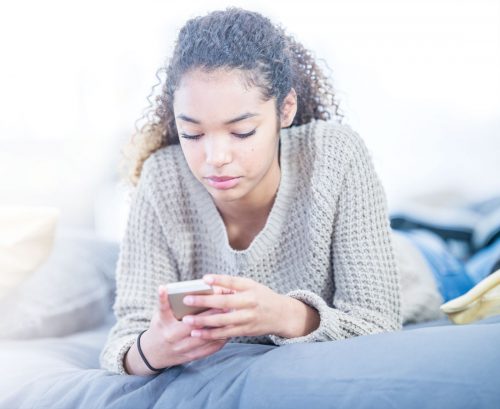
Sparking huge concern for many reasons, the latest WW diet app has kids tracking what they’re eating.
Should we be putting our kids on diets? That’s the question being debated, with the recent launch of a weight loss app for kids, aged 8-17, called ‘Kurbo’ by WW — the company formerly known as Weight Watchers.
The app (not yet available in NZ) allows kids to track what they eat and uses a ‘traffic light’ system to rank foods as green (go foods), yellow (moderation advised) and red (stop and think). Kids enter data, such as height, weight and age, and they can track their physical activity.
That much is free. Paid extras include weekly video coaching.
The app has drawn widespread criticism. Experts say there are many problems with encouraging kids to diet in this way.
For a start, encouraging kids to think of foods as good or bad is problematic, setting young people up for a lifetime of a skewed relationship with food, at best and, at worst, seriously disordered eating.
The app’s ‘before and after’ photos have drawn rightful criticism, too. Encouraging pre-adolescent kids — or anyone, really — to compare their bodies with those of others, is a recipe for lifelong disordered thinking about body image, weight and food. Many adults are already the victims of this as the multi-billion-dollar weight loss industry relies on the cycle of people dieting, re-gaining weight, and then dieting again, even though they know this doesn’t really work.
It’s long been the advice of nutrition experts that kids shouldn’t really be put on weight-loss diets at all. They’re not like mini adults, and while they’re still growing, encouraging weight loss could cause more problems than it solves.
That ‘mini adult’ concept is important. Even if we accept that each adult’s weight is their own responsibility (which is debatable) it’s hard to see how a child is in any way responsible for their weight. Most of the time kids have little control over the foods they eat because they can’t drive and they can’t buy their own food. The things that might affect weight and health — as for adults — include the food environment, the marketing of unhealthy foods, the affordability or otherwise of healthy foods and the family situation. As one commentator in the New York Times wrote, “an app can tell you to eat your vegetables, but it can’t make those foods affordable, and it can’t stabilise a parent’s work schedule so they can pack lunch and cook a fresh dinner.”
Dietitians and nutritionists these days don’t like talking about diets, and many don’t even talk about weight loss with their patients. Instead they focus on gaining health and helping people, whatever their age, to develop into intuitive eaters.
Intuitive eating means listening to your body and trusting it to tell you what it needs. And it also means tuning in to your own signals of hunger, fullness and pleasure.
That last point is one I think we, perhaps, could work on with our kids a little bit more. As an ambassador for Garden to Table I know the pleasure kids get from learning about how to grow, cook and share food together. Getting really connected to food is a lifelong gift we can give our kids. The fact that the food is healthy is important, but secondary. The main point is that kids grow up able to enjoy eating and not attaching feelings of guilt or shame to food. The more we can encourage that, the less we will need exploitative weight loss apps.
www.healthyfood.com











